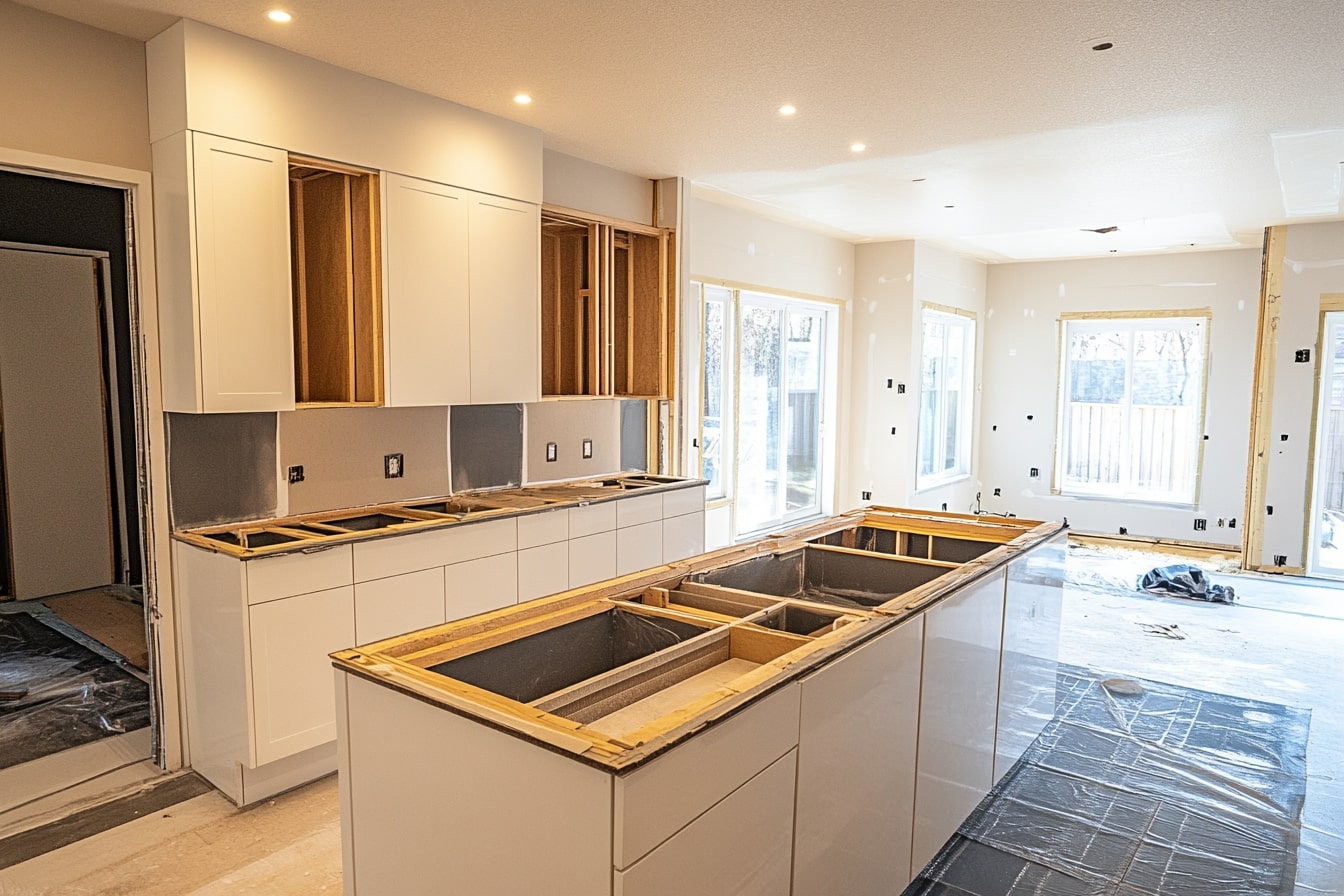Innovations and Eco-Friendly Designs for 2025
Transforming your kitchen space involves more than just aesthetic updates—it's about creating a functional environment that aligns with modern living standards. Today's renovation projects increasingly focus on sustainable materials, smart technology integration, and layouts that maximize both efficiency and comfort. As we look toward 2025, several emerging trends are reshaping how homeowners approach their kitchen renovation projects.

A complete kitchen renovation represents one of the most significant home improvement investments homeowners can make, offering both immediate lifestyle benefits and potential long-term value enhancement. The kitchen has evolved from a purely utilitarian space to the heart of the home—a multifunctional area for cooking, entertaining, working, and gathering. As design innovations continue to advance, homeowners have more options than ever to create spaces that reflect both their personal style and practical needs.
What Are the Latest Kitchen Design Innovations?
The kitchen design landscape is experiencing rapid transformation with technology leading the way. Smart appliances now offer unprecedented convenience and efficiency, from refrigerators that track grocery inventory to faucets that respond to voice commands. These innovations aren’t just novelties—they’re reshaping how we interact with our kitchen spaces.
Open concept designs continue to dominate, but with thoughtful modifications. Rather than completely wall-free spaces, many designers now incorporate partial walls, glass dividers, or strategically placed islands to create visual separation while maintaining an airy feel. This approach allows for defined zones within the kitchen while preserving sightlines and social connection.
Lighting has also seen remarkable innovation, with layered lighting schemes becoming standard in modern kitchens. Task lighting under cabinets, ambient lighting for overall illumination, and statement fixtures as focal points create versatile environments that can transition from functional workspaces to atmospheric entertainment areas with simple adjustments.
How Are Modern Kitchen Materials Evolving for 2025?
The materials dominating kitchen design in 2025 reflect a growing emphasis on sustainability without sacrificing aesthetics or durability. Engineered quartz continues its popularity for countertops, but with new manufacturing processes that reduce environmental impact while offering enhanced durability and design options. Recycled glass countertops have also gained significant market share, providing unique visual appeal with strong eco-credentials.
Cabinet materials are seeing a shift toward bamboo, reclaimed wood, and other rapidly renewable resources. These materials offer distinctive grain patterns and textures while addressing environmental concerns. For those seeking ultra-modern aesthetics, new composite materials that mimic concrete, stone, or metal provide industrial looks without the maintenance challenges of traditional materials.
Flooring options have expanded beyond traditional hardwood to include cork, which offers natural antimicrobial properties and sound dampening benefits, and porcelain tiles that convincingly replicate the appearance of wood or stone while offering superior water resistance—a crucial consideration for kitchen environments.
What Makes a Kitchen Both Functional and Eco-Friendly?
The intersection of functionality and sustainability represents the new gold standard in kitchen design. Water-saving fixtures have advanced significantly, with faucets that reduce flow without compromising performance and dishwashers that use minimal water while delivering superior cleaning. Energy-efficient appliances now come standard with sophisticated features that reduce consumption while enhancing performance.
Storage solutions have evolved to maximize every inch of available space. Pull-out pantries, corner cabinet systems with rotating shelves, and customizable drawer organizers eliminate wasted space while making items more accessible. This efficiency reduces the need for larger kitchens, supporting more sustainable home footprints.
Ventilation systems have also seen important advancements, with energy-recovery ventilators that maintain indoor air quality while recapturing heating or cooling energy. These systems are particularly valuable in kitchens, where cooking activities can generate moisture, odors, and particulates that affect indoor air quality.
What Are the Cost Considerations for Kitchen Renovations in 2025?
Kitchen renovation costs vary significantly based on scope, materials, and regional factors. Minor cosmetic updates might range from $10,000 to $15,000, while mid-range remodels typically cost between $25,000 and $40,000. High-end or complete renovations involving structural changes, premium materials, and top-tier appliances can exceed $75,000.
| Renovation Type | Average Cost Range | What’s Typically Included |
|---|---|---|
| Cosmetic Update | $10,000-$15,000 | Cabinet refacing, new countertops, sink, faucet, paint, basic lighting |
| Mid-Range Remodel | $25,000-$40,000 | New cabinets, quality appliances, stone countertops, flooring, upgraded fixtures |
| High-End Renovation | $75,000+ | Custom cabinets, premium appliances, luxury materials, structural changes, smart technology |
Prices, rates, or cost estimates mentioned in this article are based on the latest available information but may change over time. Independent research is advised before making financial decisions.
The return on investment for kitchen renovations remains strong, with mid-range projects typically recouping 70-80% of their cost at resale. However, this varies by location and market conditions, making it important to consider local real estate trends when planning a renovation budget.
How Can You Plan a Successful Kitchen Renovation Project?
Successful kitchen renovations begin with thorough planning. Start by assessing your current kitchen’s shortcomings and identifying clear objectives for the project. Consider how you use the space—are you an avid cook, frequent entertainer, or someone who needs a multi-functional family hub?
Create a realistic timeline that accounts for design, permitting, demolition, construction, and finishing work. Most comprehensive kitchen renovations take 3-5 months from planning to completion, though simple refreshes can be completed more quickly. Building in buffer time for unexpected delays can help manage expectations and reduce stress.
Selecting professionals requires careful consideration. While general contractors can handle many kitchen projects, complex renovations might benefit from a kitchen design specialist or architect. Request multiple bids, check references, and verify licensing and insurance before making your selection. The right professional team can navigate challenges, suggest cost-effective alternatives, and ensure quality execution.
A comprehensive kitchen renovation represents an opportunity to create a space that enhances daily living while incorporating sustainable practices and innovative technologies. By thoughtfully considering design elements, material choices, and functional requirements, homeowners can develop kitchens that serve their needs today while anticipating the demands of tomorrow. As we approach 2025, the focus on creating spaces that balance aesthetics, functionality, and environmental responsibility continues to drive kitchen design forward, offering exciting possibilities for homeowners embarking on renovation journeys.




